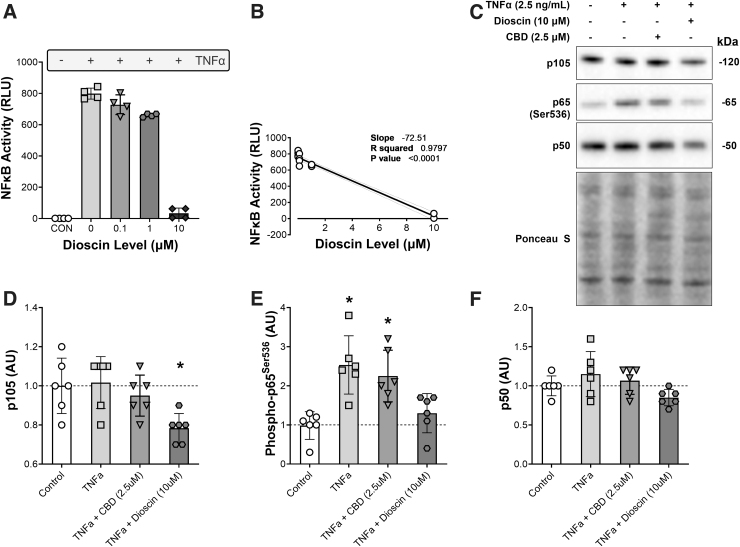FIG. 3.
CBD does not decrease inflammatory signaling through NF-κB after TNFα treatment. (A) The transcription activity of NF-κB in control HEK293 cells and following treatment with TNFα and increasing doses of the steroidal saponin dioscin. (B) The dose–response relationship between dioscin and NF-κB activity. (C) Representative pictures of western blot analysis. Levels of (D) NF-κB p105, (E) phosphorylated NF-κB p65 (Ser536), and (F) and NF-κB p50 in C2C12 myotubes after 60 min in DM, or following treatment with TNFα (2.5 ng/mL), TNFα + CBD (2.5 μM), or TNFα + dioscin (10 μM). *p-Value <0.05 compared with the control and the TNFα condition (A), and p-value <0.05 compared with the control and the TNFα + dioscin condition (B). n=6 biological replicates. NF-κB, nuclear factor kappa B; TNFα, tumor necrosis factor α.

